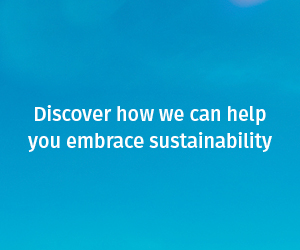How solar energy feed-in tariffs work
.jpg?h=558&iar=0&w=1000&rev=d0f5d67573b34e5a94bcc01ce6bd30b9&hash=4ED096CDAE2EAAA840A80F7769C011C3)
Free electricity generated by the sun combined with the added incentive of being paid a feed-in tariff make installing a solar power system for your home a financial investment worth considering.
This is despite concerns a drop in the State Government’s feed-in tariffs scheme over recent years has made installing a solar system less attractive.
While the tariff is not as high as it was, this has been offset by a significant reduction in the cost of installing a solar system over the same period.
Solar Choice’s Solar Price Index reveals the cost of solar power systems has dropped significantly over the past eight years.
The price index has been recorded monthly since 2012 when the cost of solar was about three times more than it is today.
Due to the high cost of solar panels in the early 2010s, high feed-in tariffs from governments were needed to encourage people to make the investment in solar.
A drop in manufacturing prices and installation efficiencies have seen solar panel costs drop from an average of $12,500 in 2012 (for a 5kw system) to about $5500, according to the Australian Energy Foundation.
This means high feed-in tariffs are no longer needed to make installing solar financially viable with a typical solar system paying for itself in three to five years.
So, what are feed-in tariffs?
A State Government scheme sees energy providers pay owners of solar energy systems for the excess renewable energy they produce at their home.
Power generated by a household solar system which is not used at the home gets fed back into the main electricity grid. This energy is then credited back to the owner and shown on their electricity bill.
In south-east Queensland, energy retailers offer different feed-in tariff rates for solar customers, so it is recommended users shop around for the best deal.
You can find out what feed-in tariffs retailers are offering by visiting the Australian Energy Regulator’s Energy Made Easy website and using the energy offer comparison.
Click here for more information on feed-in tariffs in south-east Queensland.
In regional Queensland, eligible Ergon Energy Retail and Origin Energy customers receive a flat-rate tariff.
The rate is set by the Queensland Competition Authority and for 2021/22 is 6.583 cents per kilowatt hour.
To find out if you are eligible for the feed-in tariff, contact Ergon Energy Retail (if you are connected to the Ergon Energy network) or Origin Energy (if you are connected to the Essential Energy network).
How the feed-in tariff saves you money
The feed-in tariff is part of what makes installing solar for your home financially attractive.If you generate renewable energy for personal use, you will save money on electricity.
If you produce more than you use, the energy that you generate can be exported into the grid for others to use and you may receive a credit on your already reduced energy bill.
Discover how easy it is to power your home with solar
Related topics
Things to note
The information in this article has been prepared for general information purposes only and is not intended as legal advice or specific advice to any particular person. Any advice contained in the document is general advice, not intended as legal advice or professional advice and does not take into account any person’s particular circumstances. Before acting on anything based on this advice you should consider its appropriateness to you, having regard to your objectives and needs.
Insurance Products (excluding Travel Insurance) are issued by RACQ Insurance Limited ABN 50 009 704 152 (RACQI) and arranged by its agent, RACQ Distribution Services Pty Ltd (RDS) ABN 35 116 361 650, AFSL 567130 and RDS' authorised representatives (including RACQ Operations Pty Ltd ABN 80 009 663 414, AR No. 234978 (RACQO). Conditions, limits and exclusions apply. RDS and RACQO are in the RACQ group of companies. One of the companies in the RACQ group of companies has a minority shareholding in RACQI.
RDS and RACQO have not taken your personal objectives, circumstances or needs into account when preparing advice regarding insurance products and you will need to consider whether the advice is appropriate for you. Read the Product Disclosure Statement (PDS) and any applicable Supplementary PDS before making a purchase decision on this product. You can also access our Target Market Determinations on this website. RDS receives a commission from RACQI for the policies it arranges. RACQO receives fees paid for services it provides to RDS. Further details about remuneration are available on request prior to purchasing.
Banking and loan products issued by Members Banking Group Limited ABN 83 087 651 054 AFSL/Australian credit licence 241195 trading as RACQ Bank. Terms, conditions, fees, charges and lending policies apply. This is general advice only and may not be right for you. This information does not take your personal objectives, circumstances or needs into account. Read the disclosure documents for your selected product or service, including the Financial Services Guide and the Terms and Conditions, and consider if appropriate for you before deciding.
Except for RACQ Bank, any RACQ entity referred to on this page is not an authorised deposit-taking institution for the purposes of the Banking Act 1959 (Cth). That entity’s obligations do not represent deposits or other liabilities of RACQ Bank. RACQ Bank does not guarantee or otherwise provide assurance in respect of the obligations of that entity, unless noted otherwise.
RACQ Bank subscribes to the Customer Owned Banking Code of Practice which establishes higher standards than the law requires. The Code reflects modern consumer expectations and developments in approaches to issues such as consumer vulnerability, guarantors, and supporting customers through financial hardship. Please read our Customer Owned Banking Code of Practice page for more information.
RACQ Operations Pty Ltd (ABN 80 009 663 414 AR 000234978) and Members Travel Group Pty Ltd (ABN 45 144 538 803 AR 000432492) are acting as an Authorised Representative of the issuer of the insurance, Tokio Marine & Nichido Fire Insurance Co., Ltd. (ABN 80 000 438 291 AFSL 246 548). Any advice set out above is general in nature only, and does not take into account your objectives, financial situation or needs. Before purchasing any travel products, please consider the RACQ Travel Insurance Product Disclosure Statement (PDS) and the Target Market Determinations (TMDs) that apply to these products. Whilst the PDS outlines the Terms and Conditions of these products, the TMDs outline the intended class of customers that comprise the target market for these travel products. This will allow you to consider which products best suit your objectives, financial situation and needs and consider the products appropriateness to your personal circumstances. TMDs also outline matters involving the distribution and the review of these products. The PDS, Supplementary PDS and TMDs for each travel product can be found here.

